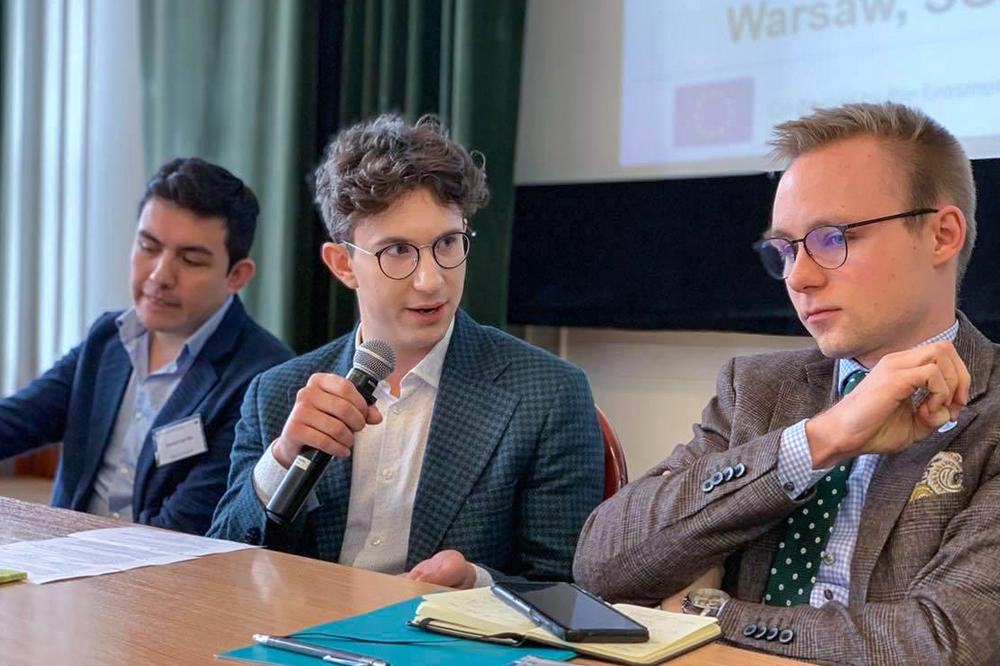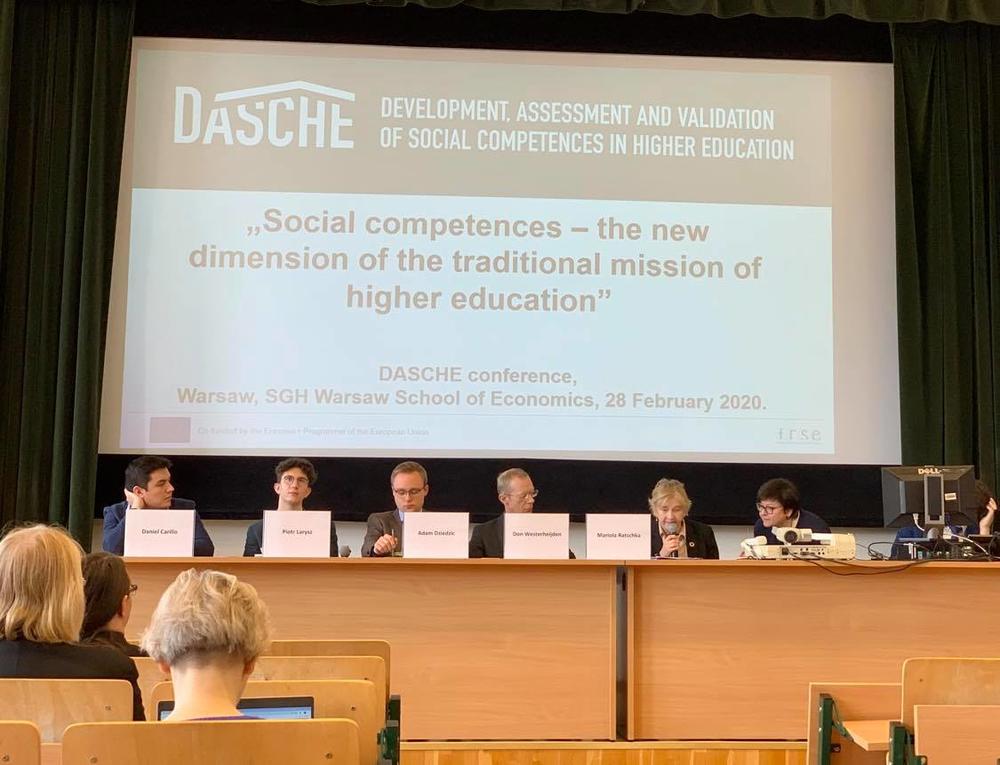Sustainability Needs Student Engagement
At the end of February, economics student Piotr Larysz spoke in Warsaw at the invitation of the United Nations about sustainability at Freie Universität Berlin.
Jun 10, 2020
Piotr Paweł Larysz is studying toward a bachelor’s degree in economics at Freie Universität. At the end of February – at a time when travel was still unrestricted – he attended the conference “Social Competences – The New Dimension of the Traditional Mission of Higher Education” in Warsaw as a guest speaker at the invitation of the United Nations. There he gave a presentation on how the topic of sustainability is integrated into teaching at Freie Universität. He spoke with campus.leben about his experiences at the conference.
Mr. Larysz, what was the purpose of the conference?
The conference was held to present the findings of the European Erasmus+ project DASCHE. As part of the project, studies were carried out in six European countries to show how universities are bringing social skills into teaching. There was a strong emphasis on sustainability in training social skills among students.
How did you get invited to the conference, and how did you prepare for it?
In 2019 I completed a six-month internship at the United Nations in Warsaw. At that time I was also invited to the conference.
To prepare for it, I met with Andreas Wanke, head of the Sustainability & Energy Unit at Freie Universität, to find out what our university does in the area of social skills in connection with sustainability.
Many of the other students I spoke with associate the term sustainability exclusively with environmental protection, recycling, and CO2 certificates. Sustainability actually refers to a comprehensive social, ecological, and economic transformation – an interrelated process of change, which also includes social aspects.
At the conference, Piotr Larysz discussed sustainability and student engagement.
Image Credit: Karina Rathman
What message did you convey to the conference participants?
In Warsaw I presented the Sustainability Report of Freie Universität, and I gave an overview of interdisciplinary courses on general professional skills, ABV for short, in the area of sustainability. It was important for me to emphasize that student engagement, for example, as part of the Sustain-it! initiative, is central to education in the area of sustainability.
My message was that universities play a central role in the development of sustainability because they strongly shape the values and views of future generations and can thus contribute to accelerating this process of change. Students deserve space for their ideas and support for their commitment.
Student engagement for more climate protection has grown significantly over the past year. How do Germany and Poland compare in this area?
During my internship at the United Nations, I was involved in organizing a conference on “Climate Change in Poland.” Various interest groups from science and politics came together with activists at the conference, and I also met many school students as well as university students who are involved in Fridays for Future or in Greenpeace.
This young generation in Poland is full of new ideas and is strongly opposed to the right-wing populist discourse of the Polish government. It was exciting to see how confidently they confronted the stakeholders with their actions or non-actions.
Where do you see Freie Universität in terms of sustainability in teaching?
According to the Green Metric World University Ranking, Freie Universität is one of the most sustainable universities in Germany and was ranked 23rd in an international comparison. It is also one of the first universities worldwide to have declared the climate emergency. I think it’s great that at Freie Universität sustainability is a competence area in the ABV module so that students from many different disciplines have an opportunity to deal with this subject matter.
What do you think Freie Universität should do next in the area of sustainability?
I hope that in the future the topic of sustainability will be integrated into even more classes. So far, around 15 percent of all the courses at Freie Universität are related to sustainability, i.e., have a connection to the goals for sustainable development in the 2030 Agenda. I am convinced that the teaching program can be extended beyond the ABV courses, so that sustainability will also play a role in the other classes.
Leon Holly conducted the interview.
The original German version of this article was published on May 18, 2020, in campus.leben, the online magazine of Freie Universität Berlin.
Further Information
DASCHE stands for Development, Assessment and Validation of Social Competences in Higher Education. The project aims to support universities in instilling social competence in their students in addition to knowledge and skills in their specific subject areas.


